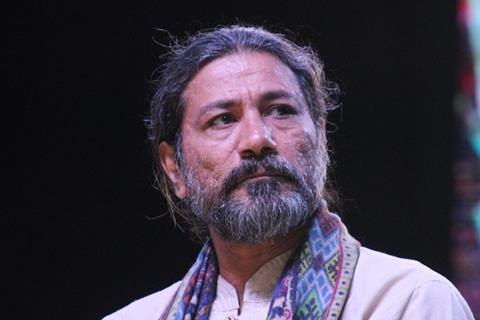
Trying to conduct an interview with Ahmed Almulla in the bustling Red Sea Souk at RSIFF can prove challenging. Every few minutes, an aspiring filmmaker or an industry professional approaches the published poet and Saudi Film Festival director to greet him and pay their respects.
It is not surprising as Almulla has been an important part of the cinematic movement that eventually led to movie theatres reopening in 2018 and the creation of a film industry in a country where, not too long ago, the entertainment medium was “haram” — the Arabic word for “forbidden”.
The origins of the Saudi Film Festival, the precursor of the Red Sea IFF, date back to 2005. Almulla was on the board of a literary club in Dammam, in the Eastern Province of Saudi, and explored adding a weekly movie night. “We were 10 people on the board, no women,” he admits, “I was the executive director and responsible for cultural activities.”
While looking into the organisation’s legal terms, he noticed a line that said the club could screen documentaries and cultural films. But no one had done this in public, he explains. “At the time you only watched movies at screenings outside the country or as we called it, underground.”
Almulla confesses that he loves poetic cinema, like Andrey Tarkovsky’s Nostalghia, Emir Kusturica’s Underground, Akira Kurosawa’s Dreams and the animation of Hayao Miyazaki. “We screened movies on the roof of the cultural club, every Sunday night but we faced a lot of struggles,” Almulla recalls. The first film they watched was Baraka, the documentary by Ron Fricke, in 2005.
Birth of a festival
From this weekly series, the Saudi Film Festival was born in May 2008, which in its first incarnation was called Saudi Film Competition. The main hurdle Almulla faced then was the lack of Arabic subtitles on international titles, since most of the films he screened were on DVD. That issue was resolved by a company that was also “underground” and worked through an anonymous website, which would add the needed subtitles and send the finished product back to Almulla ready to be screened for Saudi audiences.
“At that time I also couldn’t use ‘cinema’ as a word, I had to call it ‘film’ and couldn’t say ‘festival’ so I called it ‘competition’ — Saudi Film Competition,” Almulla explains.
The inaugural edition, which lasted five days, featured a varied selection, from French titles to Japanese films, genre and animation.
In fact, “the opening was on the same day as the first stone for ITHRA was laid down,” Almulla says proudly. ITHRA - the King Abdulaziz Center for World Culture - has since become the home of the Saudi Film Festival, as well as its main sponsor and the festival is now held in the spring of each year.
After the first edition in 2008, the event was put on hold for various reasons. Fast forward to 2014 when the long silver haired, flamboyantly dressed Saudi poet was managing SASCA — the Saudi Arabian Society for Culture and Arts, as a volunteer, and managed to bring it back. “This time around I called it the Saudi Film Festival, and from the second edition in 2015 onward, ITHRA collaborated, even while the building itself was still being built.” Through SASCA, Almulla also ran a poetry festival, a theatre festival, as well as a children and family event.
In 2018, the Saudi Film Festival was once again on hiatus, as Almulla’s four-year term at SASCA had ended and he was traveling internationally, but it returned in 2019, and in 2020 was held virtually during the pandemic. The event has been catering since to Saudi based audiences, screening films by homegrown talent, with international experts and juries coming to participate. The festival is now officially organised by the Saudi Cinema Association with writer/filmmaker Hana Al-Omair as chairwoman, the first woman in Saudi to be named CEO of a cultural organization.
A revolution in society
A well respected female Saudi filmmaker calls Almulla ‘the godfather of Saudi cinema,” but the soft-spoken cinephile doesn’t like the term. “It makes me sound like mafia,” he jokes.
He does not mind, however, calling what has happened in Saudi Arabia since 2018 “a revolution”. It is a movement that, he explains, reaches across all society, “not just an economic change, but all aspects, normal social life has resumed, we’re back to normal.”
Almulla can remember a time, back in the late 1970s as he attended university in Riyadh, when going to watch a film in sport clubs was a normal activity. Then in 1981 “everything started to slowly close up,” and it changed the country completely.
Almulla admits that while the western media focuses on visible change like “women driving, cinemas reopening, music in public, etc.” the real changes are at the roots level, citing ”the education in the schools and the laws protecting women and our entertainment are now written,” so that they cannot be explained in a different way, to suit someone’s personal agenda.
Almulla ends the conversation by mentioning the Red Sea IFF, which became a sponsor of the Saudi Film Festival in the last year. “Red Sea has really given us room to breathe — they are international, they support us and allow Saudi Film Festival to focus totally on Saudi film talents.”

























No comments yet